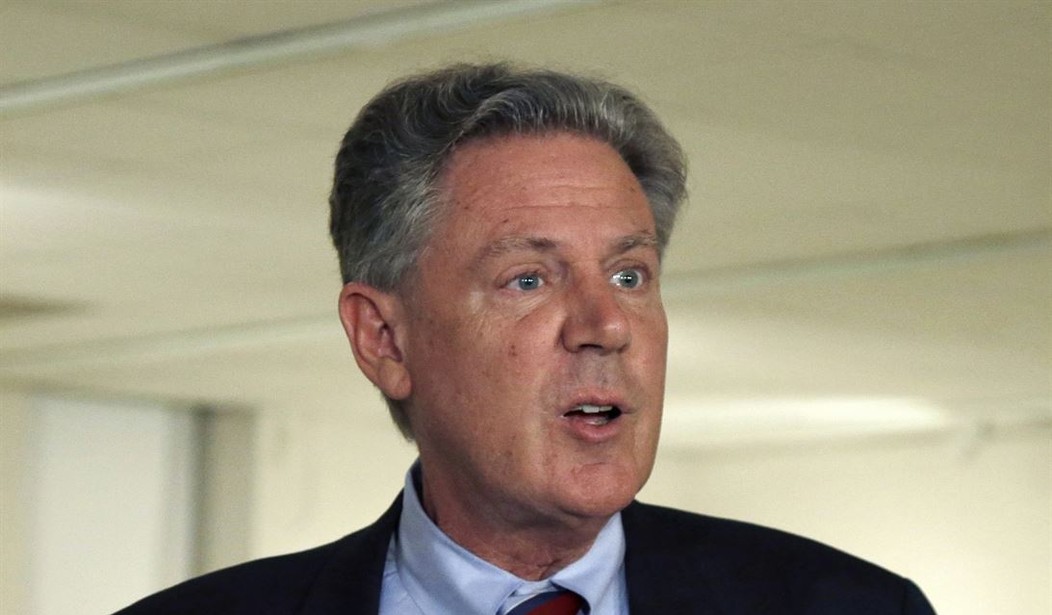Editor's note: This column was authored by Satya Marar.
Try as they might, politicians just can’t seem to stop contradicting themselves. Take, for instance, an anti-vaping bill up for debate this month from Congressman Frank Pallone (D-NJ). Pallone says he wants to make smoking less widespread. But his bill would just make it harder for current smokers to quit by enshrining FDA restrictions, like flavor bans on vaping products and the legal smoking age of 21, while also extending the flavor ban to conventional tobacco products and prohibiting online vape sales. In the process, it’ll decimate small businesses in the vaping space—to the benefit of the cigarette industry.
And this wouldn’t be the first time that a “tobacco control” bill has played into cigarette companies’ hands either. Back in 2009, tobacco manufacturing conglomerate Phillip Morris joined the Non-Government Organization “Campaign for Tobacco-free Kids” in supporting a law that banned cigarette flavors. Why? Well, that law primarily affected its competitors’ products, as it came with a convenient exemption for menthols, which is their primary flavored-tobacco product.
So, then, the only negative impact that Pallone’s new law would have on combustible tobacco (outside of adding menthol to the flavor ban) would be banning flavors in less mainstream tobacco products, like chewing tobacco. But these products account for just a small chunk of big tobacco companies’ portfolios, so the effect would be pretty minimal.
On the other hand, small vape shops would be devastated. They’ve built their businesses on helping smokers switch to a product that satiates nicotine cravings that’s at least 95% less harmful. Indeed, the flavors lawmakers are anxious to ban are vital incentives for smokers looking to switch and quit.
The FDA already implemented flavor restrictions for vapes back when people flew into a panic over a non-existent “youth vaping epidemic,” even though the vast majority of vapers are adults who previously smoked. And most youth vaping is either experimental or done by young people who were smokers already. Ultimately, flavors aren’t the primary reason why the young take up vaping. So the point of flavor bans is moot, and that moot point would be enshrined in Pallone’s statute, making these nonsensical and dangerous prohibitions harder to repeal.
Recommended
His plan to ban online sales would make things worse, too. Big tobacco has an easy time getting their products into convenience stores and retail outlets, but small vape manufacturers don’t. They rely on their websites or e-commerce platforms to keep their businesses afloat. That’s bad news for smokers in rural America who want to quit but don’t have access to a local vape shop. It could even push vapers onto potentially dubious foreign websites—right now, possibly lethal 99% pure nicotine solutions can be ordered from China.
In a not-so-surprising twist, Pallone’s legislation to ban vape flavors comes with an exemption for products marketed as “therapeutic smoking cessation devices.” But to get their products this tag, companies would have to go through the same regulatory pathway that big pharmaceutical companies use to get their drugs on the market, and that’s a multi-million dollar process. Big tobacco companies, then, would likely be the only ones capable of affording to get their products on the market this way, as these costs are way too much for Mom-and-Pop vape businesses.
In 2019, the FDA enacted a similar rule for regular (non-therapeutic) vape products. Products must now go through the agency’s Pre-Market Tobacco Application (or PMTA) approval system if they’re to be legally sold. This rule was passed even though the FDA conceded that 99% of vape manufacturers in the United States will struggle to meet the costs and resources needed to lodge an application, thereby emptying the field for big tobacco companies like RJ Reynolds, which became the first to lodge a PMTA application in October 2019. Time and time again, regulations like these just result in big wins for Big Tobacco.
That’s a shame, because since vapes hit the market, smoking rates in the United States have taken a freefall. By comparison, rates in comparable nations like Australia, which bans nicotine vaping, have remained stagnant. This is a success story, and the businesses behind it should be supported and celebrated. Instead, they’re being subjected to wanton attacks by taxpayer-funded bureaucrats and lawmakers who should know better.
Satya Marar is a Policy Analyst with Reason Foundation and the author of “Tobacco Harm Reduction: A Formula To Save 500,000 Australian Lives”

























Join the conversation as a VIP Member